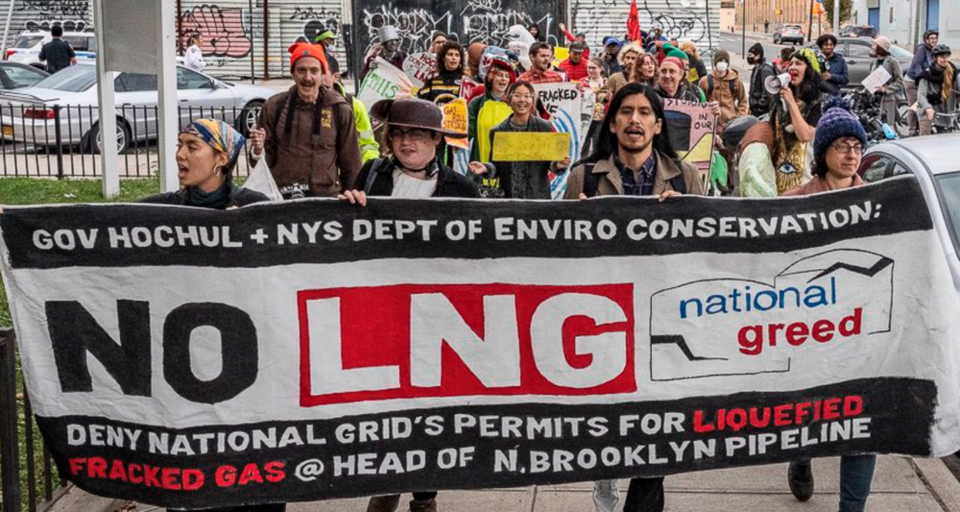Multinational utility company National Grid has officially withdrawn its application for a permit that would have allowed for the construction of two liquefied fracked gas (LNG) vaporizers at the company's Greenpoint facility in North Brooklyn.
The planned LNG vaporizers were supposed to be a part of National Grid's ongoing four-phase pipeline project. The utility company is looking to expand its fracked gas transmission pipeline in the North Brooklyn area.
The No North Brooklyn Pipeline Alliance — a coalition in opposition of National Grid's pipeline expansion plans and has been fighting against it for the past few years — learned about the utility company's decision to pull the application via an email from the New York State Department of Environmental Conservation.
“This has been an excruciating and complicated three-year fight on the segmented North Brooklyn pipeline. And the fight is far from over. The community continues to fight phases 1-4, that National Grid built and profiteered from before anyone even knew about it,” said Margot Spindelman of No North Brooklyn Pipeline Alliance.
Prior to the permit application withdrawal, the LNG vaporizer expansion was potentially going to be located in close proximity to Cooper Park Houses, a New York public housing complex located in Brooklyn.
“These vaporizers would have been installed a thousand yards from our community, where we live,” said Elisha Fye, vice president of Cooper Park Residents Council. “We must start transitioning that 110 Acre National Grid facility near our homes to renewable energy and land restoration so we can breathe clean air.”
The withdrawal by National Grid comes following a decision made by state utility regulators, the New York State Public Service Commission, back on March 16, of this year.
During that time, the Public Service Commission had denied National Grid's request to finance the vaporizer project with ratepayers' money following an independent assessment report that deemed it unnecessary, according to the No North Brooklyn Pipeline Alliance.
“These vaporizers would have been another blow to our community's health, safety, and wallets,” says GiGi Nieson, a resident of Bedford Stuyvesant, a neighborhood that includes phase 2 of the Pipeline.
"Every month I see my utility bills go up and up to pay for fossil fuel projects that directly harm my neighbors and myself."




